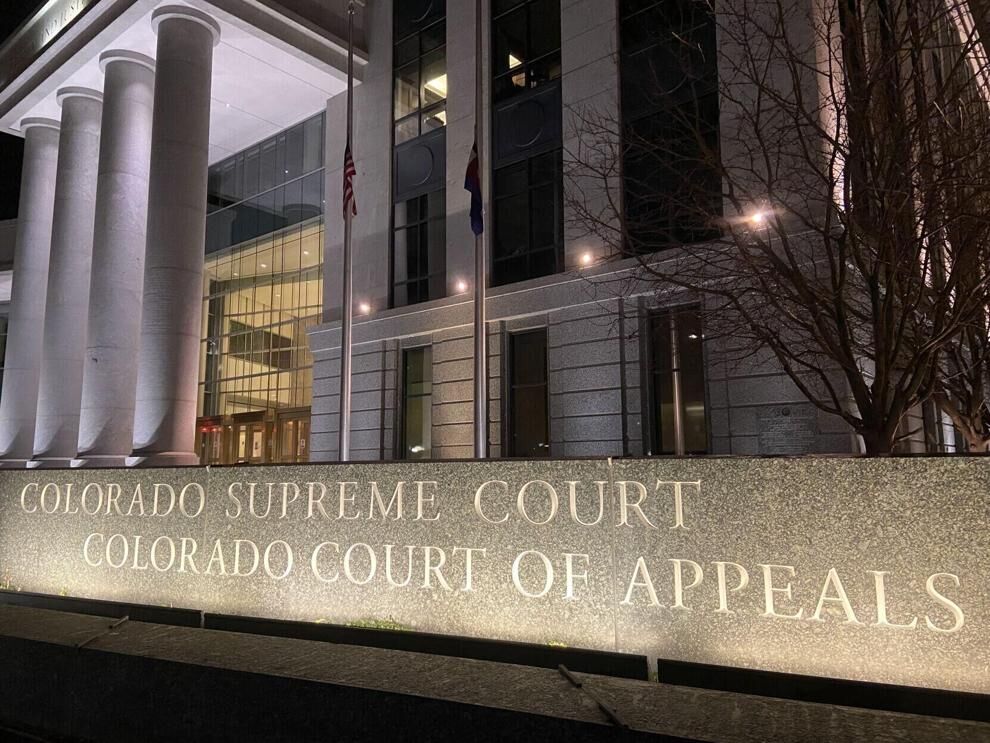Judicial discipline commission considered 17 cases in 2021, issued several private reprimands

The body in charge of disciplinary proceedings against state judges investigated 17 complaints in 2021, ultimately imposing private discipline on a handful of trial judges.
Although the Colorado Commission on Judicial Discipline received 200 requests for evaluation, as complaints are known, the commission rejected 183 of them outright for failing to plausibly allege a violation of the code of judicial conduct. Of the remaining cases, the commission dismissed 10 more when the evidence did not establish, more likely than not, judicial misconduct.
In total, the commission’s work last year resulted in three private reprimands to judges, all for delays in handling cases, and one public censure. While the total number of complaints — 200 last year and 199 in 2020 — was slightly higher than the previous years’ average, the commission clarified that circumstances beyond the control of the courts were responsible for some misconduct reports.
“The disruption of the judicial branch’s management of hearings and trials during the COVID-19 pandemic prompted several complaints about delays and the occasional difficulties in connecting with remote hearings by video and in managing the proceedings. These situations were unavoidable and did not involve judicial misconduct,” the judicial discipline commission wrote in its report released this week.
Judicial discipline of the state’s approximately 334 judges and justices is separate from the appellate process, and the commission has no authority to modify or reverse judges’ rulings. Instead, the body initiates disciplinary proceedings for alleged failures to uphold the integrity and impartiality of the judiciary. The 183 complaints the commission dismissed did not amount to ethical violations or else leveled allegations against non-judges.
The most high-profile imposition of discipline in 2021 came in the public censure and resignation of Arapahoe County District Court Judge Natalie T. Chase, who admitted to repeatedly using the N-word front of court staff and otherwise acting unprofessionally. By law, the remaining judges who were disciplined in private were unidentified in the commission’s report.
The commission privately reprimanded three judges for their delays in issuing rulings. One judge took 1.5 years to rule on a complex civil case and ultimately apologized to the parties for his delinquency. Another judge waited for five months to issue an order in a child welfare case, despite the need for expedited handling. A final judge went seven months before ruling on an uncomplicated motion to dismiss a civil case, which the commission acknowledged was affected by the COVID-19 pandemic and staffing issues.
The rules of judicial discipline, however, prevented the commission from considering an additional complaint that was well-documented in a Court of Appeals decision. Last year, the appellate court reversed a defendant’s conviction because former Adams County District Court Judge Thomas R. Ensor berated and humiliated the defense counsel in his courtroom. Although Ensor stepped down soon after and became a semi-retired senior judge, the commission noted it could not address Ensor’s conduct from his time as an active judge due to a one-year statute of limitations.
The Gazette reported that Chief Justice Brian D. Boatright removed Ensor last year for a different episode of misconduct.
For six complaints in 2021, the judicial discipline commission documented its concerns about the underlying cases, even though it ultimately dismissed the reports.
One judge took 11 months to rule on a probate case, and only issued a decision once the commission notified the judge of a complaint. A second judge waited more than one year to rule on a contempt citation, finally deciding the matter within seven days of the commission alerting him to the report. A third judge also experienced a delay in deciding a domestic relations case — again issuing an order only after the discipline commission got involved.
In another instance, a judge recused themselves from a case because they filed a professional complaint about one of the attorneys. When that attorney withdrew, the chief judge returned the case to the original judge. The commission was concerned the reassignment did not sufficiently describe the reason for the shuffle and the chief judge admitted his error.
In a criminal sentencing matter, a judge made a veiled reference to the defendant being beaten up as a consequence for his offense. While the judicial discipline commission did not believe the remarks amounted to misconduct when read in context, the commission said “observers of the subject judge’s statements could have reasonably misinterpreted the statements as evidence of intemperance.”
Finally, the commission cautioned a judge about their commentary on a proposed plea offer for multiple defendants.
Beginning in 2022, the Commission on Judicial Discipline will receive its own funding after legislators this year endorsed making the entity more independent of the judicial branch. The reforms will enable the commission to engage services outside of the judiciary when carrying out its investigations.
Although misconduct complaints are rarely disclosed to the citizen-led performance commissions that evaluate judges for retention, the judicial discipline commission indicated in its report that no judges opted against standing for retention this year due to disciplinary reports.
Six cases from 2021 continued into 2022. The commission also noted it is currently revamping its website to host an online portal for submitting misconduct complaints.













